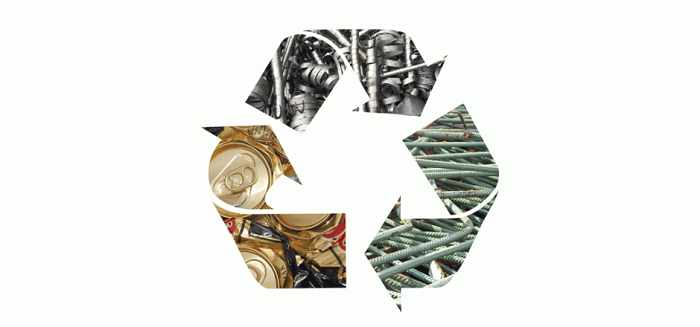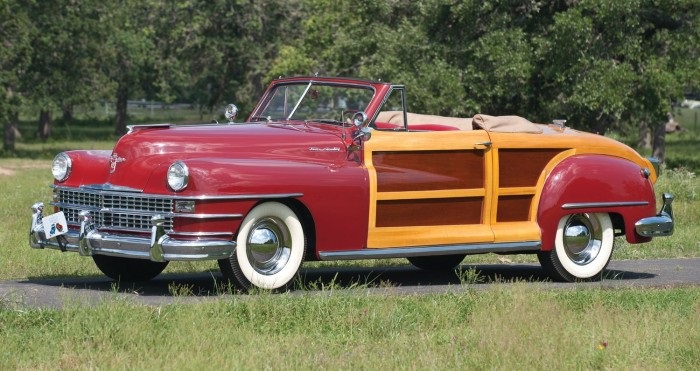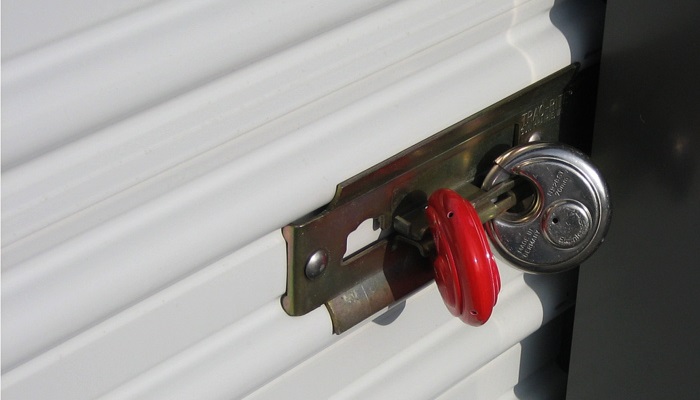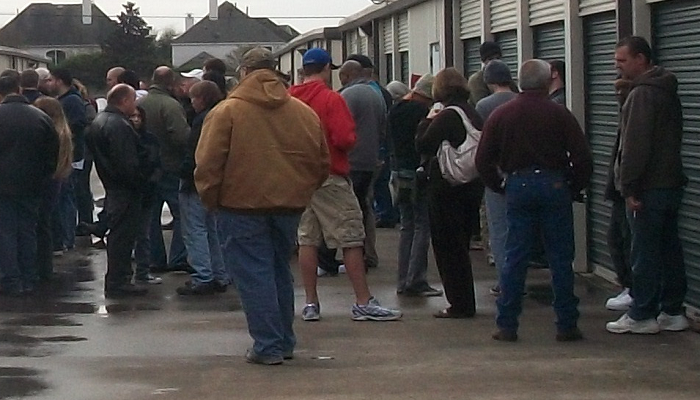Each year, around 2 million storage units go into default and are auctioned by storage facilities. The average price of a storage unit bought at auction tends to hover around $200, but an influx of novice bidders has caused prices to jump all over the country. Thanks to shows like Auction Hunters and Storage Wars, newcomers to the industry may become over-eager and bid substantially more than a unit is worth, and winning bids of $1,000 or more are not uncommon at many auctions. This is bad news for competing bidders looking to make money in a business that already has slim profit margins, but it definitely benefits both the auctioneer and the storage facility.
Why Do Storage Facilities Auction Items?
First and foremost, storage facilities are in the business of storing items, not selling them. The primary purpose of an auction is to maintain a positive income by keeping as many paid units available as possible. Storage auctions are held to recover the cost after a person defaults on storage unit payments. Holding an auction allows the storage facility to make up the money lost in rent payments, free up the storage unit and get the storage unit cleaned out without needing to do that labor themselves.
In order to be considered for auction, a unit must have gone unpaid for two to three months, and extensive attempts will be made to contact the unit's renter to collect payment. If these attempts are fruitless, the unit will go up for auction.
There are several things the storage facility must do to ensure that the auction is held legally:
- They must notify the renter that the auction will take place
- They must advertise the auction publicly
- After the unit has been auctioned, the tenant's lien is forgiven, unless the unit sells for less than the balance of the lien, in which, the tenant can still be taken to court.
Some storage facilities hire professional auctioneers to handle these auctions. The auctioneers are paid by a commission based on the total amount of the bid. This means that it's always in the auctioneer's best interests for the bidding to get as high as possible. While high bids can be a good thing for the storage facility as well, it can sometimes cause additional concerns depending on the laws governing auctions in that state.
What Happens to the Profits From an Auction?
If the bids are low, the storage facility may lose money on the unit by receiving less than the money owed in delinquent rent. On the other hand, sometimes bids exceed the cost of back-owed rent. In these situations, the excess money is supposed to revert back to the original renter of the unit. In reality, this rarely happens.
It's often difficult to get in contact with the renter; in most cases, the unit went into default because the renter never appeared to pay off the back rent, and this makes contacting them to pay back auction winnings rather difficult. The renter may assume that the phone calls or letters are a collection attempt, or they may simply no longer have the same contact information.
There is also very little legal oversight of the storage facilities to ensure that they're making every possible attempt to contact the unit's renter. The precise responsibilities of the storage facility vary from one state to the next, but many states allow the facility owner to keep any money that goes unclaimed by the unit's original renter. In Texas, for example, the law states that facility owners must send a letter to the renter's last known address. The renter has two years to respond; after that period, the facility is free to keep the proceeds of the auction.
Other states handle this a bit differently. In California, for example, the renter has one year to claim the funds. After that period, excess profits go into an escheatable account in the county where the sale occurred. Many states handle the issue in this way, including Indiana, Michigan and Georgia. Indeed, the Texas law allowing profits to revert back to the facility owner is the minority, although Texas is certainly not the only state that allows it.
Once the money goes into an escheatable account, it's owned by the state. The rightful owner of that money can claim it by going through the local comptroller's office, but these funds often stay unclaimed indefinitely.
Who Profits From Storage Auctions?
Because most states do not allow storage facilities to profit in excess of the lien, high bids on auctions do not benefit the facility owners. In fact, they create more paperwork and logistical problems for the facility owners, who must make sure to consult with state laws, send notices to renters and issue checks to the state. If the facility's owner fails to pay back money that's owed to the state, they may get into legal or tax trouble. In states like Texas where profits can be retained, high-bidding auctions are more attractive to storage facilities, but they still create extra hassles as the owner attempts to contact the original tenant.
Ultimately, the person with the most to gain from an increase in bidding is the auctioneer. Even bearing this in mind, overpriced auctions will ultimately have a bad effect on the auctioneer if they cause auction attendance to fall. Regulars, realizing that the bidding may get too high, might stop attending auctions, and this would damage the entire industry.
The best choice for everyone is always to bid fairly and conservatively. This helps to keep things competitive for bidders and stimulates growth in the industry, and it keeps hassles down for everyone involved. It also helps make it easier for professionals to continue making conservative profits on their wares without striving for the often-inflated numbers seen on TV.







